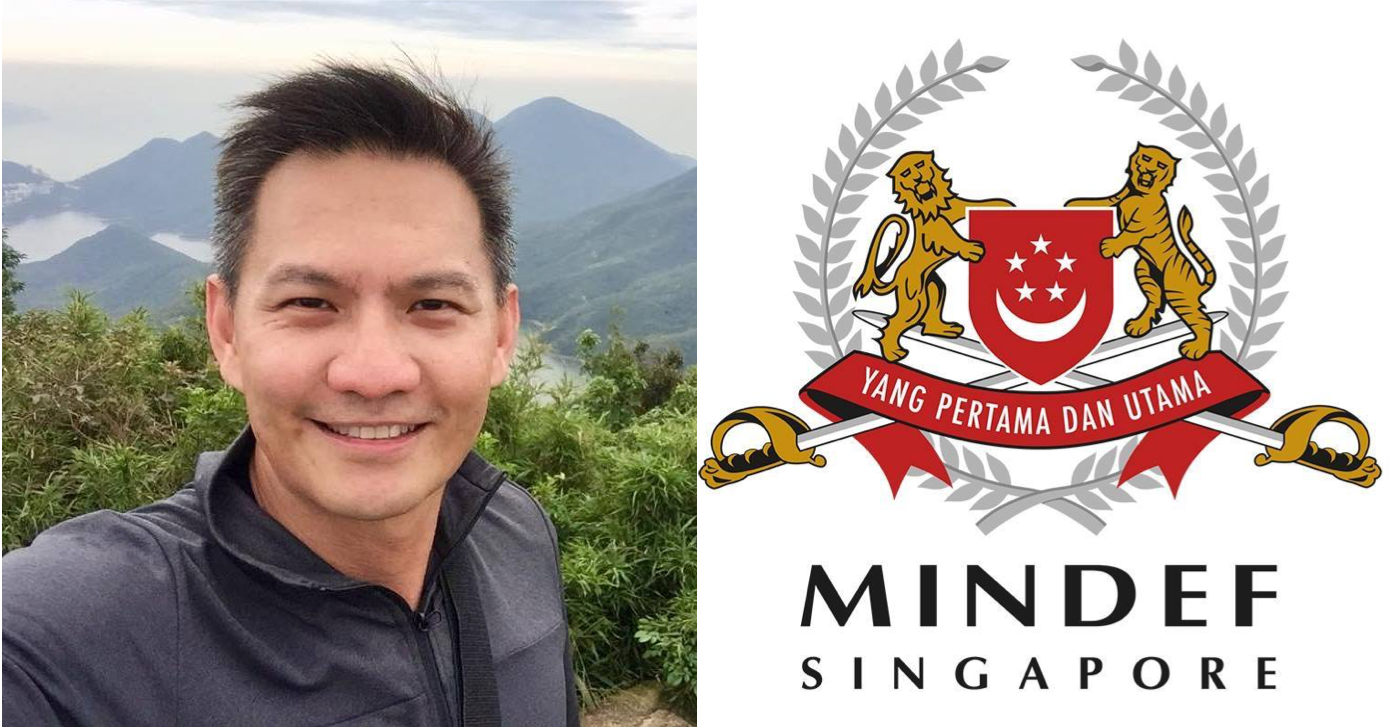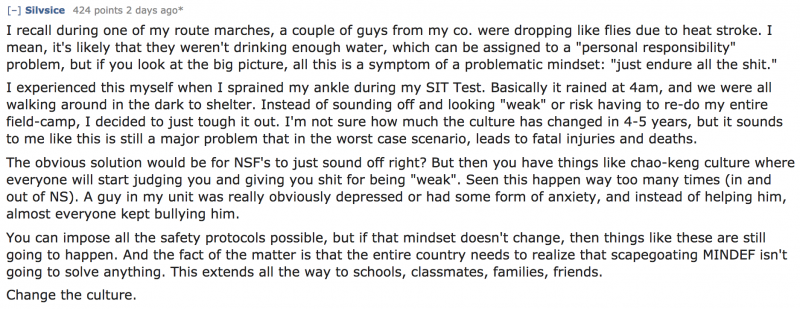Singapore economist Donald Low penned a thoughtful post on Facebook following the news of Aloysius Pang.
Pang, a local actor, died on Jan. 23 after sustaining injuries while performing reservist duties in New Zealand. He was 28.
Low, a former Associate Dean of the Lee Kuan Yew School of Public Policy, noted that an independent Committee of Inquiry (COI) had been convened to investigate the circumstances leading to Pang's death.
But he said that he hoped the COI would lead to an overhaul of safety culture in the Singapore Armed Forces (SAF), and not just examine the causes of this particular tragedy.
Said Low, "(The COI should) try to understand how organisational culture emerges and why a strong safety culture doesn’t seem to have taken root in the SAF after all these years."
In terms of safety, the SAF had a record of zero operations-and training-related fatalities for four years leading up to August 2017.
Since then, the SAF has witnessed five fatal incidents.
Former motorbike rider
Low shared his own personal experience of serving in the SAF, where his vocation required him to ride a motorbike.
Accidents, usually minor but occasionally serious, did occur. He attributed them to recruits being expected to ride in rough, off-road conditions almost immediately after completing their training.
When Low reported for reservist training, he was expected to ride a motorbike again, nearly a decade after he last did so.
He informed the officer in charge, who "breezily" replied that Low would have a couple of orientation rides.
Low then got himself downgraded and posted to a non-combat role, due to his damaged knees.
Fundamental change needed for safety culture
Low pointed out that dysfunction was common in large organisations, including the SAF.
Instead, precedents, rules and priorities should be examined to understand policy-making.
In Low's view, successfully embedding a culture into the SAF will take more than just lectures about training safety.
Instead, a strong safety culture requires the following:
- Rules that are consistently enforced.
- Safety routines that are practised all the time (and not just when they are convenient or when the unit has spare time).
- Priorities that are re-ordered and then reflected in the daily practices of units.
- Precedents of safety violations by officers being punished (even if there are no casualties).
He recommended that organisation psychologists in the SAF should study this, but he feels they have other priorities.
"But I doubt that safety culture is a priority area for them; I suspect they are far more focussed on issues such as soldier/team performance and motivation."
To illustrate his point further, Low shared a Note on Facebook on Jan. 25, adapting a chapter from Charles Duhigg's book, The Power of Habit: Why We Do What We Do in Life and Business.
The chapter tells the story of the 1987 fire in the London Underground in England, and how organisational inertia failed to stop a disaster.
You can read it here.
Redditors share their stories
Low's views on the need for fundamental change in the safety attitude within the SAF were echoed in a reddit thread in r/Singapore.
Based on a Facebook comment by Shane Sim, who shared his experiences while serving in an artillery unit, they also recounted alleged safety lapses while serving.
Related stories:
Top image adapted from Donald Low and Mindef's Facebook pages.
If you like what you read, follow us on Facebook, Instagram, Twitter and Telegram to get the latest updates.



